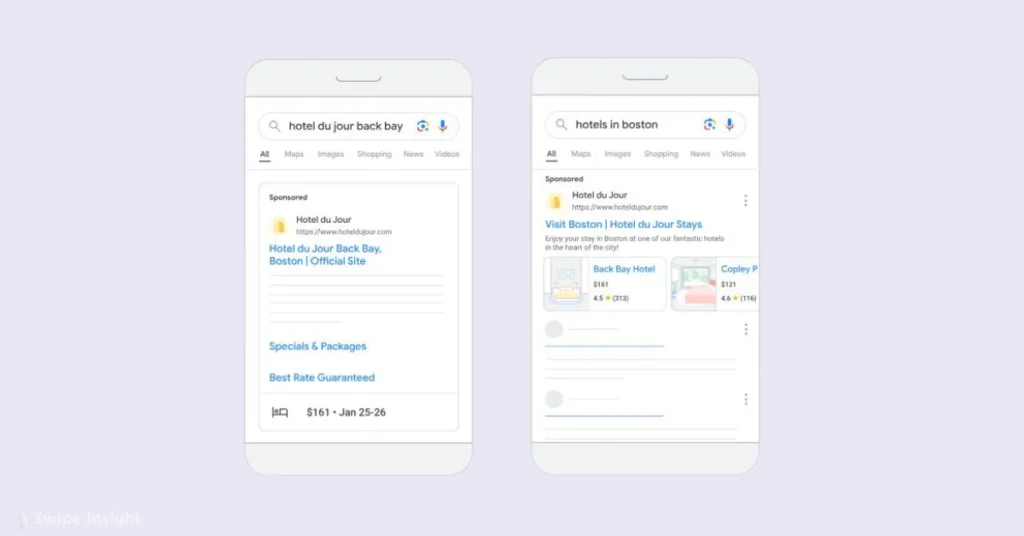The world of digital marketing is competitive, and perhaps more so than ever before; in the travel sector, customer expectations and behavior are undergoing continuous changes. Among the best tools to optimize ad performance while making sure that your campaigns are relevant, targeted, and impactful, one of the most efficient ways is travel feeds within Search Ads.
This blog will go over what Travel Feeds are, how they work, and how you might use them to improve the performance of your Search Ads campaigns.
Table of Contents
ToggleWhat Are Travel Feeds?

Travel Feeds is a dynamic dataset that enables advertisers to upload such timely, structured information about their travel products into Google Ads. The feeds contain a lot of detailed information: for instance, flight details, hotel pricing, car rental availability, and other related travel offerings. Then, the information used actually generates ads automatically, tailored to a user’s search intent and location in real-time.
For example, if a traveler is searching for “cheap flights to Paris,” a Search Ad with data from your travel feed can dynamically display a specific flight offer, price, and departure details, all sourced directly from your inventory.
Why Use Travel Feeds for Search Ads?

With the rise of travel search behavior, where users are looking for personalized and relevant offers, Travel Feeds provide an ideal solution. Here are some key reasons why you should consider using Travel Feeds in your Search Ads strategy:
1. Automated and real-time updates
Travel Feeds enables you to update your inventory in real time. What this means is that if the prices or availability of flights, hotels, or car rentals changed, your ads would automatically reflect these changes, ensuring accuracy and up-to-date information. This dynamic feature significantly cuts down on manual labor to make an update on each ad and increases the chances of capturing your users at the right moment.
2. Better Targeting and Relevance
Travel Feeds allow Google Ads to automatically match users with the most appropriate offers for their search. Imagine a person searching on Google for “hotels in Rome”. Through your feed, Google can push back and highlight the most relevant listings for the user, considering the latter’s location, search query, and preferences. This translates to more relevance in your advertisements, enhanced CTR and conversion rates.
3. Customizable and Flexible
Travel Feeds is customizable to a travel related business type, like airlines, hotels, car rentals, and so on, and may be made to focus on categories of products, price ranges, or even popular destinations. The versatility of the Travel Feed makes it perfect for businesses, large, small, medium, to reach broad audiences as well as targeted markets.
4. Better Ads Performance via Ad Extensions
By using Travel Feeds, your Google Ad Extensions-Specific Price Extensions and Promotion Extensions and other extensions are activated to make your ad more visible by showcasing prices, promotions, and deals with your ad copy. All of this can help users make quicker decisions. Ad Extensions through Travel Feeds are proven to enhance ad engagement, and therefore increase CTR and, ultimately conversion rates for your campaigns.
Setting Up Travel Feeds for Search Ads

Setting up travel feeds is simple in Google Ads but does require some prior preparation. Here are the steps you can take to ensure integration without any hurdles:
1. Create or Choose Your Travel Feed Source
Your travel feed must be presented in a Google-usable structured format. Generally, this requires some file format such as CSV, XML, or Google Sheets. Ensure that the feed contains key fields, including:
– Product Name
– Product Description
– Price
– Availability
– Destination when applied for hotels and flights
– Date of Travel (for flights, tours, packages)
– Currency
2. Upload Your Feed to Google Merchant Center
Once you have your feed prepared, you need to upload it to your account in the Google Merchant Center. This way Google has access to your inventory data. Make sure the data is according to Google policies for travel-related products.
3. Link Merchant Center with Google Ads
To add Travel Feed to your Search Ads, you need to connect your Google Ads to your Google Merchant Center. This will allow feed data to be automatically applied to your campaigns. When you are connected, you can start building campaigns that change ad copy and product to regularly in and out of the mix based on what your feed contains .
4. Set Up Your Search Campaigns
Set up a Search Campaign in Google Ads and make sure to turn on the “Dynamic Search Ads” feature. Dynamic Search Ads automatically create the most relevant ad copy by pulling relevant information from your feed, based on what the user might search for.
In addition, through the “Targeting Settings” of Google Ads, you’ll target specific regions, languages, and device types plus select which feed categories you’d like to focus on, for example, specific destinations or products.
5. Campaign Reporting and Optimization
Then, once you activate your campaigns, it’s crucial to monitor the performance of each closely. CTR, conversion rate, and cost per conversion (CPC) are some of the metrics with which you must track the level of traffic and sales generated by Travel Feeds. Google Ads features detailed reporting, thus helping you to understand which of the particular products or offers is doing well.
Best Practices for Using Travel Feeds in Search Ads

To avail and optimize travel feeds, take advantage of the following best practices for better ad performance:
1. Keep Your Feed Data Accurate and Updated
The quality of data that your travel feed contains determines its success. Therefore, update the product’s availability, prices, and so on correctly and at the right time. You should even consider automating feed updates if you have a large number of products in your inventory so as to avoid mistakes and give users the latest offers.
2. Segment Your Feeds
If your business offers multiple types of travel products (e.g., flights, hotels, and car rentals), segment your feed into different categories. This allows for more granular targeting and ensures that your ads are showing the most relevant offers for each user’s search intent.
3. Use Dynamic Ad Features
Use dynamic ad features, such as Ad Customizers and DKI (Dynamic Keyword Insertion), for your Search Ads. This way, you could change the ad copy in real time based on the user’s search and the specific data in your Travel Feed, which increases engagement rates.
4. Implement negative keywords
Dynamic ads are extremely powerful, but, at times, they may end up showing your offers to completely irrelevant searches. To avoid this, it’s essential to review your search terms from time to time and ensure you negate keywords to avoid targeting users who are unlikely to convert. For instance, if your business sells premium or luxury travel products, you can negate searches for “cheap flights.”
5. Test and Optimize Regularly
Try constant differing elements in your Travel Feed ads, for example in your prices, or destinations, or even ad copy. A/B testing different variation of your dynamic ads helps you to understand what combinations of factors work best for you and gives you the chance to refine.
Conclusion
The key to driving conversions and customer satisfaction in the travel industry is timely, relevant, and personalized offers. Travel Feeds in Search Ads enables powerful ad creation, improves targeting, and ensures that your business stays ahead of the competitive travel market.
By setting up a structured and dynamic feed, linking it to Google Ads, and using best practices, you can deliver personalized and highly relevant ads to travelers, driving higher engagement and better overall performance. As user behavior becomes more search-driven, integrating Travel Feeds into your Search Ads campaigns is no longer optional but a necessity for sustained success.
About Us
Bloom Digital Marketing Agency is a bespoke digital marketing agency specializing in the travel and tourism industry. We help grow your online presence, get you more clients, and generate revenue through innovative strategies which produce real results for our hotel, tour operator, travel agency, or destination marketer.
As a leading Google Ads management services, we create customized campaigns that drive targeted traffic to your business. With Bloom, you’ll experience the perfect blend of creativity and analytics in your Google Ads efforts. Let us help you flourish in the competitive digital landscape!








